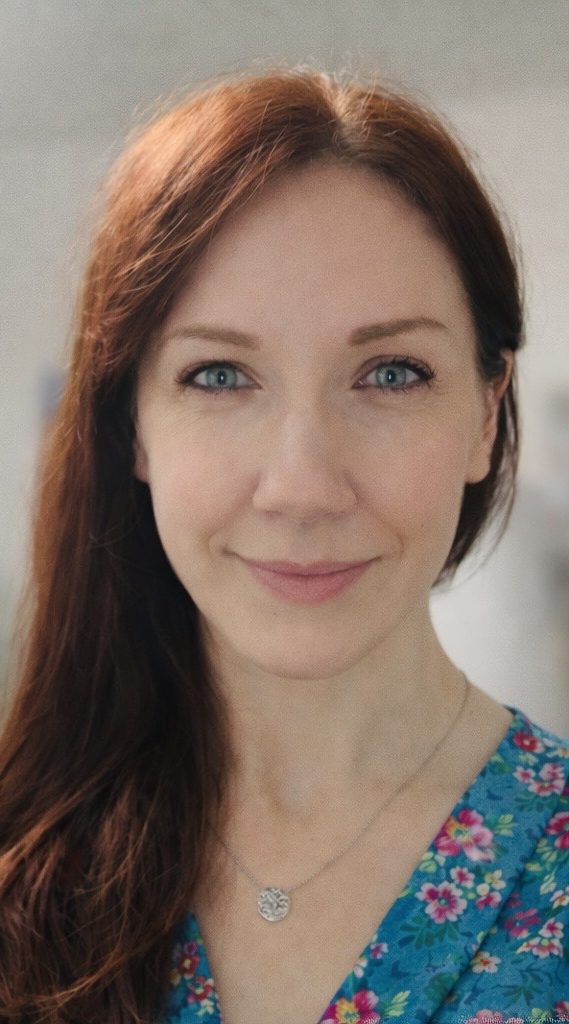Are you seeking to get to know yourself, rather than trying to fix yourself?
Life can sometimes feel like endless adaptation to demands that feel disconnected from what you truly want. You may have arrived here tired of constantly trying to manage yourself, fix yourself, improve yourself. Perhaps it worked for a while, even, but the change does not seem 'permanent'. You feel like something needs to change but the usual solutions that you apply feel repetitive and hollow. Too neat and too prescribed.
Psychoanalytic psychotherapy provides a confidential space to explore what lies beneath - rather than helping you adjust better, it paves the way to understanding yourself differently. It offers a space to let go of performing and survival mode, opening up room within yourself to start questioning, thinking, and connecting to the world in your singular way.
Psychoanalytic work is open-ended, meaning that we don't have a specific number of sessions agreed from the start. At the same time, psychoanalytic psychotherapy is not end-less. Change, when it starts happening, unfolds gradually, as newly discovered meanings take shape allowing the old structures to start loosening. Over time, this can open the possibility of a different relation to yourself and to others. A relation that emerges from your own experience rather than imposed solutions.
If you would like to explore beginning this work, I offer psychotherapy sessions in East London, Stratford (E20) and you are welcome to arrange a consultation.


My Approach to Psychoanalytic Psychotherapy
In my practice I offer a space where:
- You are invited to speak your mind freely and follow your own associations
- Thoughts can unfold at their own pace, including those that feel strange or unexpected
- Change takes shape gradually, as space opens around your experience, rather than through forcing yourself to feel different
- Uncertainty is given space, which can open new perspectives
- The focus is on exploring what the past means for how you live now
- Lasting change arises from questioning the assumptions that shape how you see yourself and others
Working With Questions of Identity and Belonging
I work with people whose lives are shaped by a wide range of experiences, whether cultural, relational, or gender identity. Many have moved between countries, cultures or languages, including first- and second-generation families.
Themes of belonging, difference and tension between worlds often surface in the process in significant ways. At the same time, feelings of difference, uncertainty or dislocation can appear in the lives of people whose families have lived in the same country for generations.
If you ever felt caught between worlds, or struggled with the question of where you belong, this work creates space to explore those questions without needing to resolve them into neat categories.
About Anna Sergent
I am an accredited psychotherapist working in East London. My practice is grounded in psychoanalytic thinking, careful listening and an interest in how people make sense of their lives in times of transition or uncertainty.
Professional Qualifications & Memberships
- Psychoanalytic Psychotherapist, professional member of The Association for Group and Individual Psychotherapy (AGIP)
- Clinical Membership of United Kingdom Council for Psychotherapy (UKCP 2011185432)
- Member of College of Psychoanalysis and Jungian Analysis (CPJA)
- Master's degree in Psychology from Jagiellonian University (MBPsS 261881)
Clinical experience in London
Apart from working with adults in my private therapy practice, my clinical experience includes:
- Senior counsellor and assessment worker at Strides Counselling Centre
- Contracting therapist for workplace wellbeing services, Samata Health
- Contracting therapist for a mental health charity, Rise Above the Disorder (RAD)
- Volunteering as a therapist for the Psychosis Therapy Project (PTP) where I developed skills in providing therapeutic interventions with complex presentations such as psychosis and personality disorders.
A Foundation in Mental Health and Social Care
Before training as a psychotherapist, I spent over a decade working in UK mental health and social care settings. This included supporting adults navigating psychiatric services, survivors of domestic abuse and young people in care.
Managing a day unit for autistic adults further shaped my understanding of person-centred work and the power of therapeutic relationships.
Additional Professional Roles
My professional background also includes recruitment and training programme development. I designed and delivered prevention and early intervention training for social care teams and developed employment support and training initiatives in a tech start-up. This experience gives me particular insight into workplace dynamics, organisational pressures, and the psychological impact of professional transitions - themes that often emerge in therapeutic work.

Practical Information & Consultations
How We Meet
My practice primarily offers in-person psychoanalytic psychotherapy in East London. For those who need more flexibility, hybrid and online options are also available upon consultation.
The Location
I work from a private consulting room in London, Stratford East Village (E20), located within the Olympic Park. The practice is easily accessible from Hackney and Dalston.
Fees & Your Initial Consultation
The first step is to schedule an initial consultation. This is a dedicated space to think together about your reasons for seeking therapy and whether ongoing work would be helpful. It's also an opportunity for you to ask questions and get a sense of how I work.
Fees are discussed during the initial consultation and are based on the frequency and nature of the work.
Frequently Asked Questions
Q: How does psychoanalytic psychotherapy work?
A: Psychoanalytic psychotherapy provides a confidential space to explore emotional difficulties that may not be easily put into words at first - psychotherapy might help with it. People often come to therapy because they’re struggling with anxiety, depression, relationship difficulties or a sense of being stuck in repeating patterns. Psychoanalytic psychotherapy allows us to explore these experiences at a deeper level, gradually uncovering how unconscious processes shape the way we relate to ourselves and others.
Psychoanalysis does not offer quick fixes but opens the possibility of lasting change by engaging with what lies beneath the surface. Each analytic process unfolds at its own pace, depending on what you bring and your wish to continue.
Q: What are your fees and availability?
A: My fee is discussed during the initial consultation and varies depending on the frequency and nature of work. I offer sessions on weekdays from Stratford, East Village (E20), as well as online. If we decide to work together, we'll agree on a regular time that works for both of us. See the sessions and fees page.
Q: What is your clinical training?
A: My clinical training in psychoanalytic psychotherapy spans many years of academic study, clinical practice, and personal analysis. It includes working with clients under regular supervision to ensure safe and ethical practice. Although I completed the core part of my training, I continue to engage with psychoanalytic literature and ongoing professional development, deepening my understanding and refining my work as a psychotherapist. You can read more on the About Me page.
Q: How long does psychoanalysis take?
A: Psychoanalysis is open-ended form of therapy. Unlike short-term counselling, it isn’t about reaching a specific goal within a fixed number of sessions. Instead, it offers a space for long-term exploration of unconscious patterns. Some people work psychoanalytically for several months or years; others may continue longer. It's natural to feel uncertain about the length at first, and we can talk about this as the work unfolds. You can read more about the psychoanalytic process in one of my blogs.
Q: What kinds of issues can psychoanalysis help with?
A: Psychoanalysis is suitable for a wide range of emotional and relational difficulties, including anxiety, depression, identity questions, relationship problems, work-related stress, creative blocks and questions about meaning and purpose. These issues are often connected to deeper patterns in a person’s life and history.
Psychoanalytic therapy does not focus only on removing a problem, but on understanding its roots and significance. While this process takes time, it can lead to a lasting change. To find out more, here is my blog entry or a video commissioned by the Freud Museum.
Q: How is psychoanalysis relevant today?
A: Psychoanalysis remains highly relevant today because it explores the unconscious patterns that shape human thoughts, emotions, and relationships. While modern life has changed, fundamental human struggles, such as identity, desire, anxiety, and relationships, remain.
Contemporary psychoanalysts continue to engage with and develop early psychoanalytic ideas, integrating them with new insights from culture, neuroscience, and social change. In a fast-paced world that often prioritises quick solutions, psychoanalysis provides a space for reflection, helping patients to understand themselves beyond surface-level symptoms and engage with the deeper dimensions of their experience. To find out more, see this animation.
Get in touch
Feel free to contact me if you have any questions about how psychotherapy works or to arrange an appointment. This enables us to discuss the reasons you are thinking of coming to therapy, whether it could be helpful for you, and whether I am the right therapist to help.
You can also call me on 079 19665440 if you would prefer to speak to me first. If there is no answer, please leave me a voice message. I am happy to discuss any queries or questions you may have before arranging an initial appointment.
©Anna Sergent
powered by WebHealer

